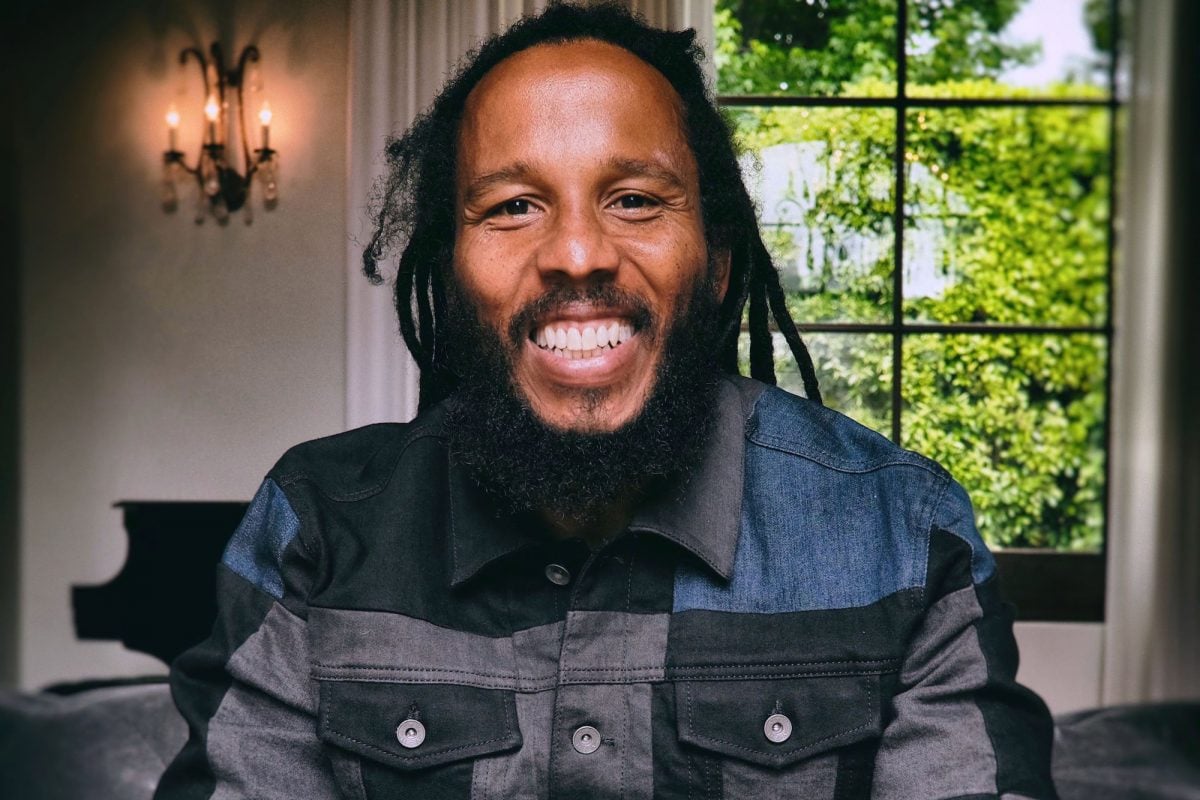‘I Don’t Really Focus On Skin Colour Anymore,’ Says Ziggy Marley

Ziggy Marley, the oldest son of Bob Marley, says he has stopped paying attention to people’s skin colour, following comments made by British actor and comedian Sir Lenny Henry.
In mid-June, Sir Lenny Henry, in an interview with BBC Radio Times, had said he found it “interesting” to see the apparent lack of black people in the audience at the UK’s annual Glastonbury Festival of Performing Arts and that said he was also “surprised” by the lack of diverse faces at other UK festivals. “I’m always surprised by the lack of black and brown faces at festivals. I think, ‘Wow, that’s still very much a dominant culture thing,’” he had noted.
However, Ziggy, who performed at the festival between June 22 and 26 at the Worthy Farm in Somerset, has stated that he had ‘stopped looking at skin colour’ when asked about Henry’s remarks during an interview with Talk TV.
“You know, I don’t really focus on that anymore. We look at humanity. We’re all human beings… So, I don’t really focus on the colour of people’s skin,” he said.
During the week of the festival, which had Sir Paul McCartney, Billie Eilish, Diana Ross and rapper Kendrick Lamar as headliners, Ziggy had taken to Instagram, where he shared videos of his performance at the event and encouraged peace and unity, telling attendees to “let’s get together and feel alright”.
“Humanity’s hope is in unity. Message sent, message received. Mission fulfilled. 🔥🔥🔥🙏🏾@glastofest for the opportunity to spread Bob Marley words and to the people for the reception. ❤️ JAH,” he noted under a video of himself singing One Love to a massive audience.
In a “diversity statement” on the Glastonbury website, the organizers have noted that “much of the social landscape has changed” since the first festival in 1970. According to them, Glastonbury had “evolved with these changes” and that the Black Lives Matter movement “has had a profound impact on us”.
Glastonbury’s first black headliner was the American singer-songwriter Curtis Mayfield, back in 1983. Mayfield was the singer/author of the People Get Ready, a revolutionary anthem which was interpolated into the iconic song One Love which was recorded by The Wailers in and then as a solo by Bob Marley in 1977 as “One Love People Get Ready” on the Exodus album.
According to the festival organizers, there was controversy when another African American, Jay-Z, was chosen to headline the festival back in 2008 as some rock fans objected to a rapper headlining the festival.
“This was a year of pre-Festival hoo-ha about the inclusion of rap megastar Jay-Z as Saturday night’s headline act, the suggestion being that rap had no place at Glastonbury. Jay-Z disproved this with enormous style and some wit, delivering a storming show that drew a vast and enthusiastic crowd. The Kings of Leon headlined on the Friday night and Sunday night’s electrifying Verve reunion sent shivers down the spine,” Glastonbury organisers noted on their website.
Emily Eavis, co-organiser of the festival, is reported as admitting that the performance of grime musician and rapper Stormzy, who became the first black solo British headliner in the festival’s history when he performed at Worthy Farm, in 2019 was “a little bit late”.
Glastonbury Festival, began on September 19, 1970 when farmer Michael Eavis decided to throw his own pop festival at Worthy Farm after being inspired by an open-air festival he recently attended, by what is considered a “complete coincidence”, the day after guitar legend Jimi Hendrix died.
According to the BBC, while more than 100,000 people attend Glastonbury in the 21st Century, 50 years ago around 1,500 people turned up, paying £1 per ticket – which included free milk from the farm. By 2019, the event had a capacity of 203,000 visitors, with tickets costing £248 and selling out in minutes.
“The first Festival was held on the day after Jimi Hendrix died, over a two day period and before long “word had got around”. It was the Blues festival at the Bath & West Showground that had inspired Michael Eavis to begin a festival of his own although on a smaller scale. Acts to appear included: Marc Bolan, Keith Christmas, Stackridge, Al Stewart and Quintessence,” the Glastonbury festival’s website notes.
